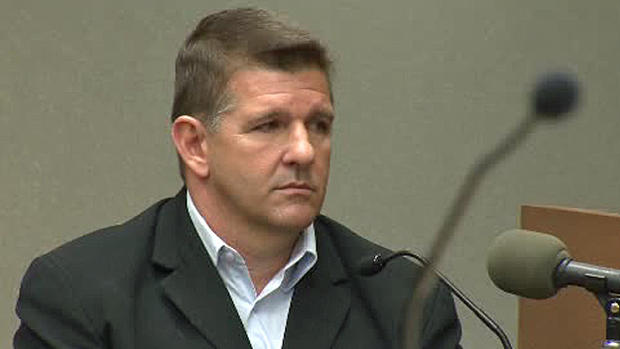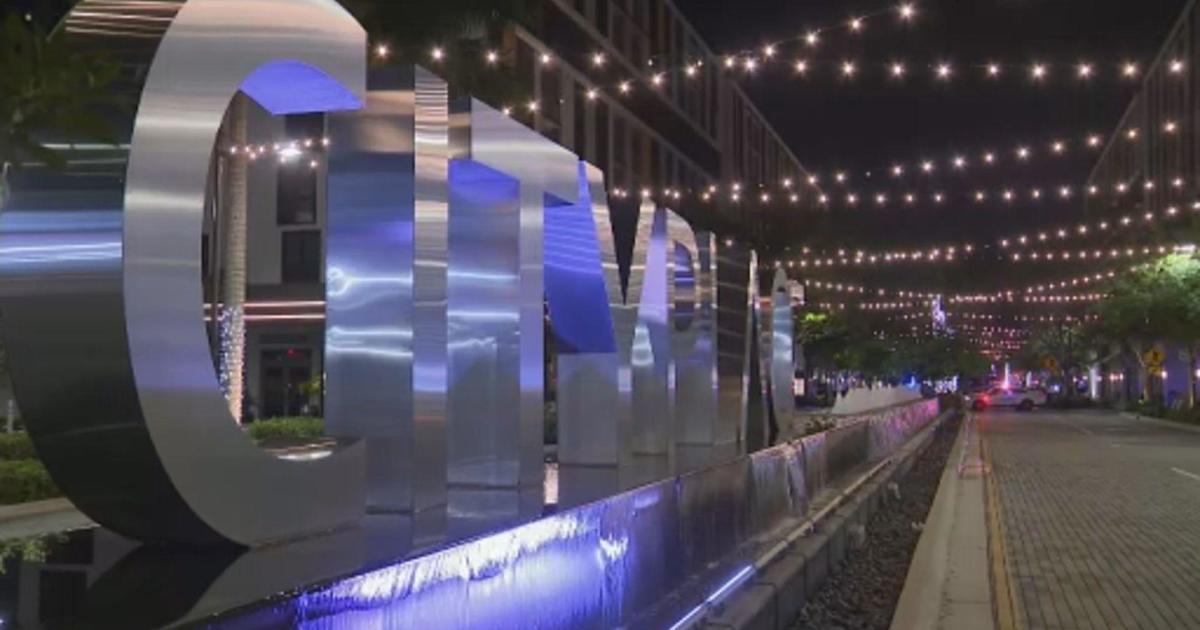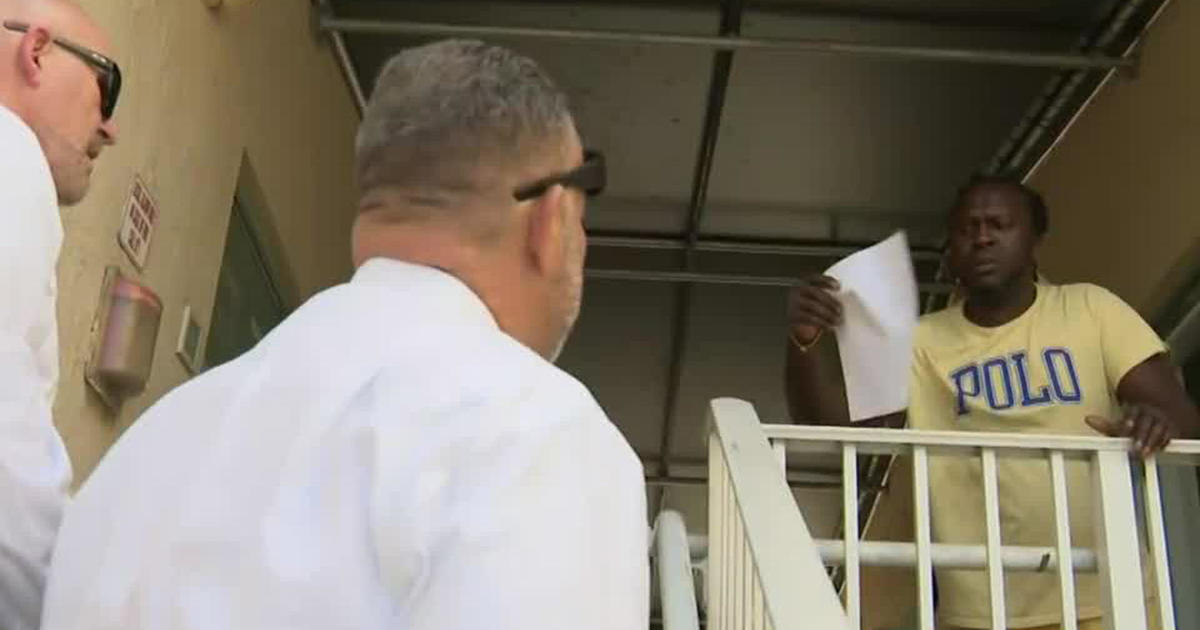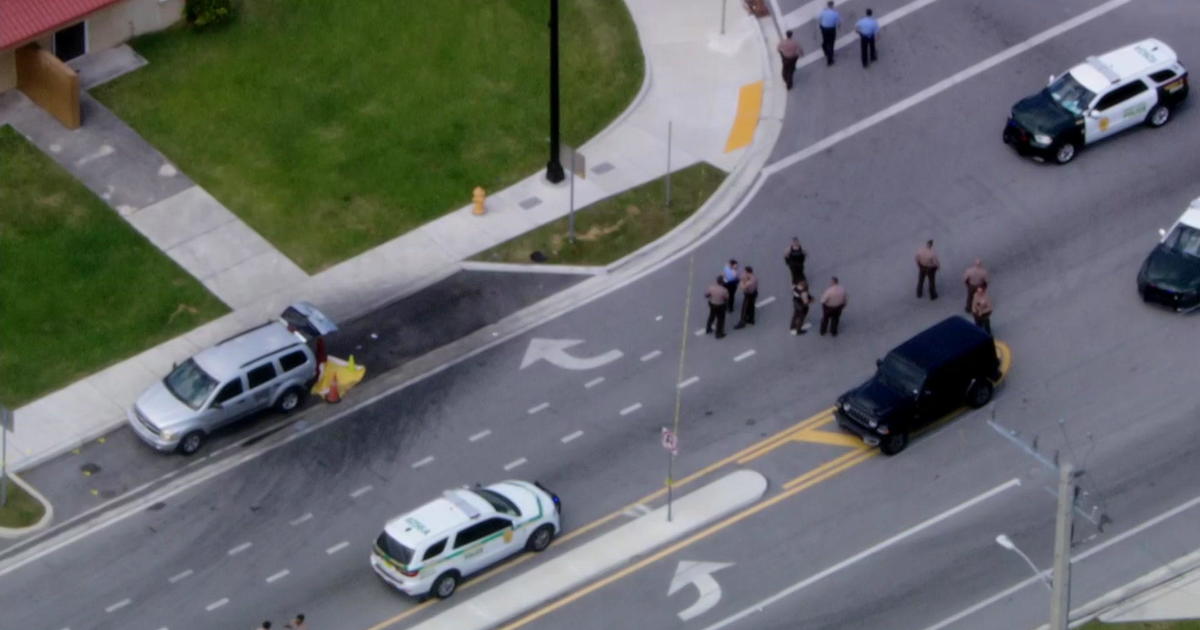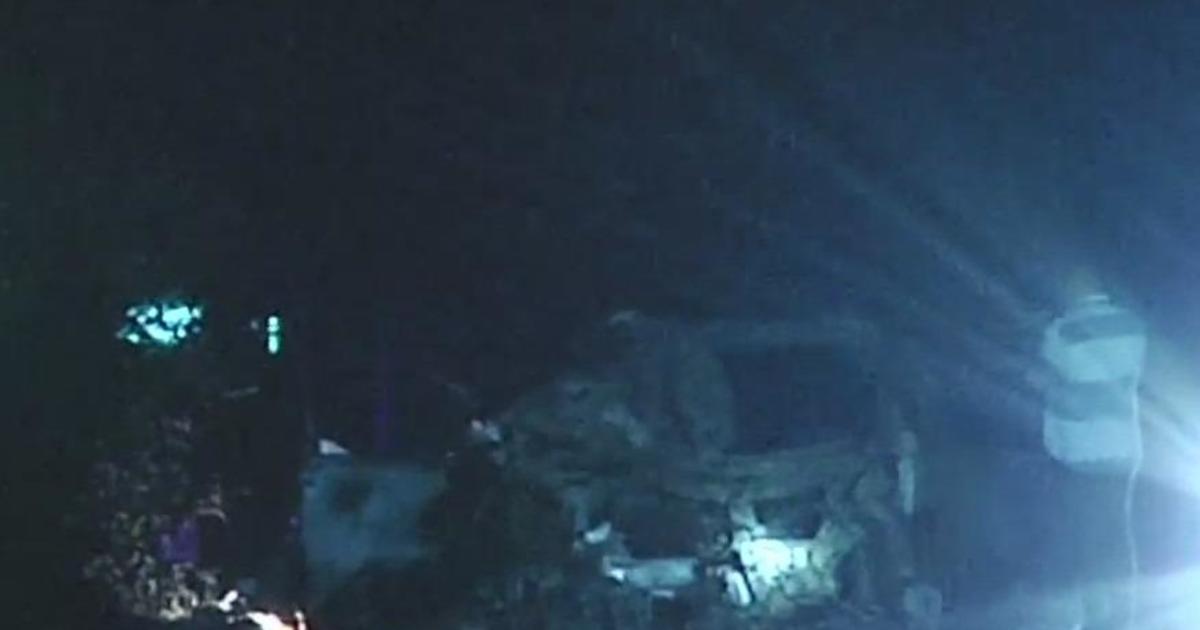Day 2 Of Sandor Guillen's DUI Manslaughter Trial
MIAMI (CBSMiami) – The DUI manslaughter trial of Sandor Guillen, who is accused of killing 13-year-old Kaely Camacho, continued Thursday in a Miami-Dade courtroom.
The first person to take the stand Thursday was Miami-Dade traffic engineer Hiram Hernandez. His testimony was aimed at countering the defense suggestion that Guillen had a green light in the wreck that killed young Kaely.
Kaely was in the backseat of her dad's minivan on the morning of April 13, 2012 when it was T-boned by Guillen who was driving in the Miami-Dade busway at SW 184th Street and U.S. 1.
Hernandez said sensors on the busway won't give a bus or other vehicle the green if it's going more than 15 miles per hour, otherwise there is a 55-second delay before the light turns green.
"The reason was to force the bus drivers down before they get the green," Hernandez testified, adding that the system was configured to reduce the frequency of collisions on the once accident-plagued busway.
Prosecutors have said Guillen was barreling down the busway in excess of 80 mph, far too fast to have had time to trigger a green light.
Hernandez also offered an obvious but relevant answer in response to a question from prosecutor Laura Adams.
"Are civilian vehicles allowed to use the busway?" Adams asked. "No," Hernandez replied. "They are not."
The issue of green lights and busway access aside, even more damning testimony came earlier.
Toxicologist Dr. Lisa Reidy testified that Guillen had a blood alcohol level of .26, more than three times the legal limit.
Judge Ellen Sue Venzer appeared incredulous Thursday when the defense argued that the medical examiner should not be permitted to testify that "speed" contributed to Kaely's death. The minivan the girl was in was ripped in half by the force of the impact, and Guillen's SUV then rammed a tree, spun five times and came to rest nearly half the length of a football field away.
Judge Venzer denied the motion to bar testimony about speed. The medical examiner has not yet testified.
Thursday afternoon saw testimony from traffic homicide investigators whose work the defense tried to attack.
Defense attorney Bruce Lehr accused Det. Oscar Perez of destroying his original notes on the accident scene. Perez countered that he converted his original work into a diagram drawn to scale, a much more accurate presentation than the rough sketches he made by hand at the scene.
"I feel you are disrespecting me," Perez told Lehr. Efforts to challenge the detective's credibility did not appear to score points with the jurors, some of whom appeared visibly irritated.
Traffic homicide Detective David Greenwell showed jurors photos of Guillen's demolished Range Rover, the Camacho's van ripped in half, and the blood covered seat where Kaely was fatally injured.
The girl's mother, sister and other family members watched, wearing bracelets of blue—Kaely's favorite color.
Wednesday, jurors heard emotional testimony from Kaely's father, Kirk Camacho, especially when he recalled the crash.
"I basically saw what seemed like a flash and, umm, followed by a sound that sounded like a bomb," said Camacho.
He recounted lifting Kaely's limp, bloody body out of the minivan after the accident and described the moment doctors told him his daughter had died.
"They eventually came in the room and told us that she didn't make it," said Camacho, fighting back tears.
Camacho's two teenage daughters were in the mini-van. Kaely was killed, her sister Bree Ann was injured.
The prosecution gave a graphic description of the DUI crash saying that Kirk Camacho was holding his daughter "as her life blood oozed out" and Guillen ran from the scene. Adams told the jury Kaely's head was impaled by a cup holder that left a gaping hole in her head.
Not only did Guillen fail to call 911 or try to help the Camachos, but he stumbled away, ditching his IDs in a clump of bushes. But a police officer, alerted to the traffic accident, spotted Guillen in a nearby field — listening to music on his cellphone.
Guillen claimed he had been "jumped" by unknown assailants, Adams told jurors. But DNA in the blood on the Range Rover's airbag pinpointed Guillen as the driver of the speeding vehicle, Adams said.
"That coward ran away," Adams said, looking at Guillen.
His defense attorney, Bruce Lehr, acknowledged that the collision occurred. But he said Guillen, a physical therapy assistant from Coral Gables, was severely injured and disoriented after the wreck.
Guillen's lawyer also attacked the quality of the Miami-Dade police investigation, suggesting detectives used faulty mathematical calculations to determine Guillen's speed.
"There is no evidence to show anything more than a collision and, unfortunately, a death," Lehr said.
Guillen pleaded not guilty to DUI manslaughter, vehicular homicide and leaving the scene of an accident. Guillen refused a plea deal.
If Guillen is found guilty, he faces up to 30 years in prison.
